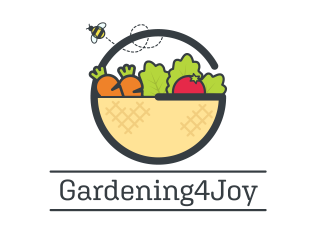There is a saying that ‘what gets measured gets done’. With that in mind, I think it is interesting to understand the trends in organic production and consumption. In this post, I have summarized the latest data from the Research Institute of Organic Agriculture (FiBL), based in Frick, Switzerland. The data published in February 2019, represents data collected and analyzed in 2018, for 2017. In summery, the report represents a remarkable effort as this data is collected globally, organized and then analyzed to produce a very comprehensive report on the state of the latest organic statistics.
First, a quick summary of the findings in the report indicates that there continues to be impressive growth in overall organic statistics. However, the biodiversity (variability among living organisms) of the plant continues to decline and climate change impacts all of us. There needs to be a continuing education of people on what ‘organic’ means. Therefore, I have dedicated a section on my blog titled “Understanding Organic” where I try to demystify what organic really means. According to the FiBL report “organic agriculture has the potential to contribute to a sustainable future: climate change, food and nutrition security, halting biodiversity loss, and promoting sustainable consumption”.
Historical Facts
Before we look at the key statistics, here are a few historical facts, about organic, published in the report.
- In the mid-1980s organic practices first gained attention as concern rose about the industrialization of agriculture
- 2006 was the first year that data was collected on organic crops and land use, globally
- Organic retail sales topped $50 billion globally in 2008 and there were 1.4 million organic producers
- Whole Foods Market (acquired by Amazon in 2017) became the world’s largest natural and organic food retailer in 2017. In the US, other larger retailers are introducing their own private label organic brands. Kroeger introduced “Simple Truth” and Shoprite introduced “Wholesome Pantry”
Key Statistics
Now, let’s look at key global statistics:
| Metric | 2016 | 2017 |
| % of total agricultural land that is organic | 1.2% | 1.4% |
| Number of organic producers | 2.7 million | 2.9 million |
| Global organic sales (in USD) | $90 billion | $97 billion |
| Countries with organic regulations | 89 | 93 |
Countries with the largest amount of land dedicated to organic production
- Australia (35.6 million hectares)
- Argentina (3.4 million hectares)
- China (3 million hectares)
What is a hectare, you may ask? A hectare is 10,000 square meters or 2.47 acres. Hectares are a commonly used unit for descriptions of land in agriculture. It is a common unit of measure that can be applied globally.
Countries with the largest number of organic producers (global total: 2.9 million)
- India 835,000
- Uganda 210,300
- Mexico 210,000
Producers can be broken down into four main categories: individual farmers, grower groups, companies and projects.
Countries with the largest organic sales (global total: $97 Billion)
- US $45.2B (increase of $3.5M from prior year). Accounts for 5.5% of overall US food sales. The US alone represents ~47% of total global sales.
- Germany $11.2B
- France $8.9B
Summary
While the data on overall organic statistics is promising, the report identifies some ares for concerns:
- Supply shortages because demand is growing faster than supply
- Trade wars could have an impact
- Concentration of sales in two key markets (US and Europe)
The good news is that research continues globally on organic practices. Organizations such as FiBL ensure that country leaders have the necessary information to make informed decisions one the sustainability of our planet.
The picture at the top of this post is of Fenway Farms at Fenway Park in Boston, the home of the Boston Red Sox baseball team. It is a great example of leveraging roof space to set up a garden that provides fresh, organically grown vegetables and fruit to Red Sox fans.
More about Organic
To learn more about organic, check out the following posts:






 Please check your email to confirm subscription.
Please check your email to confirm subscription.